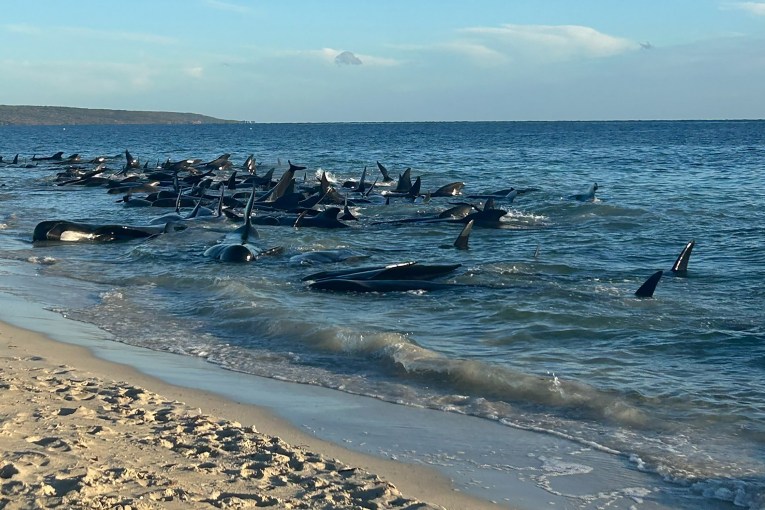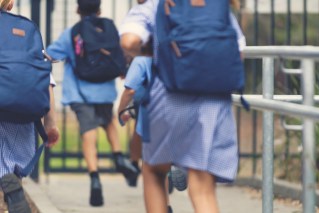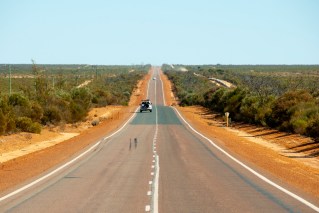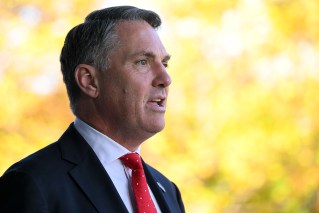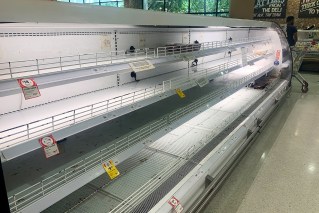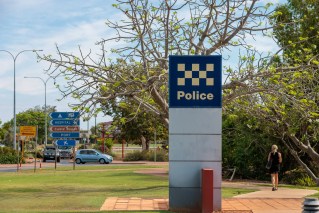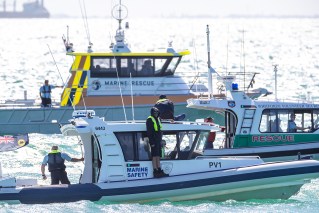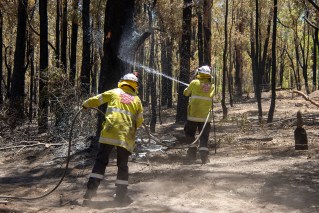Mass stranding of 150 whales at Hamelin Bay near Augusta, almost all dead
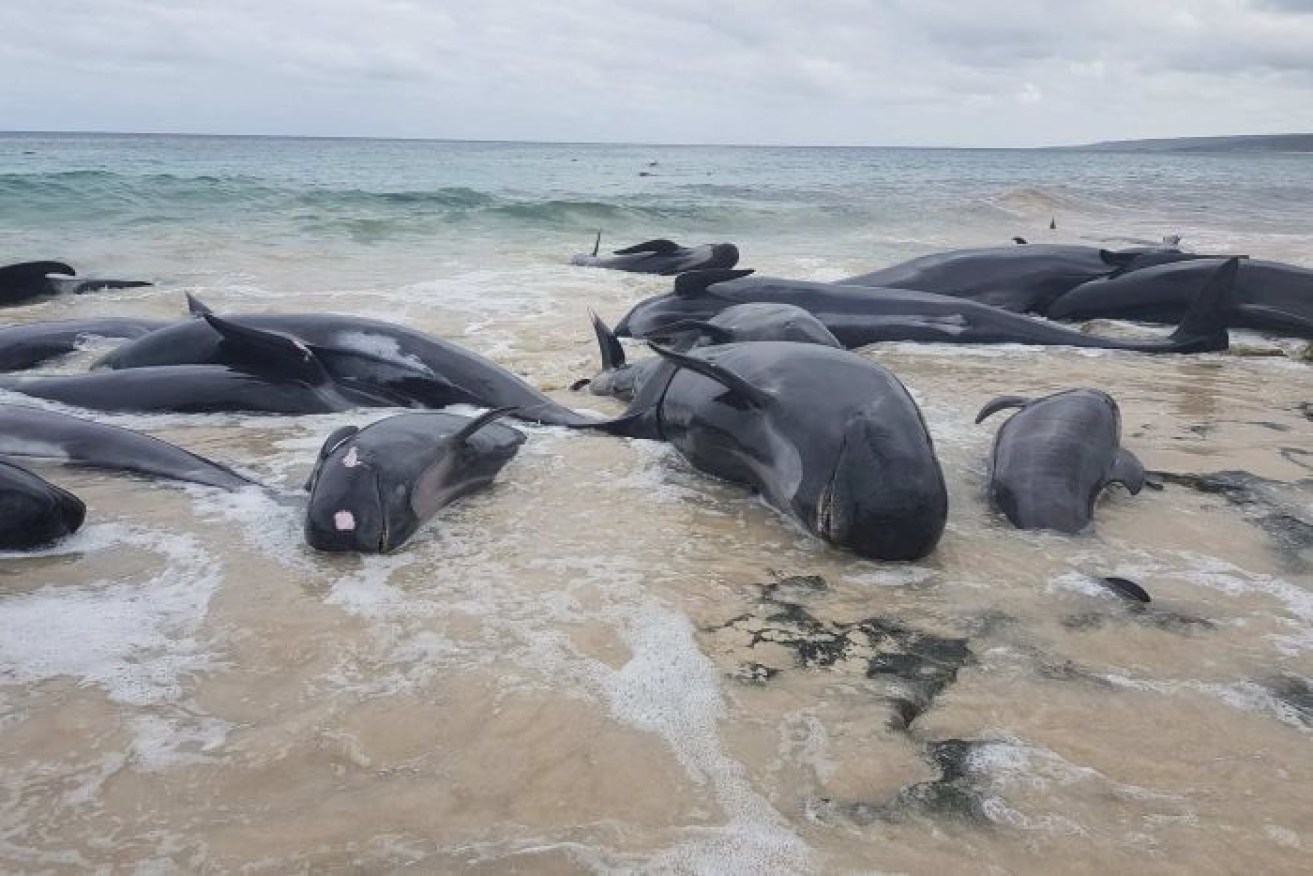
The vast majority of whales could not be saved in one of the largest whale beachings seen in Australia. Supplied: Leaarne Hollowood
More than 100 volunteers with the help of vets have rescued five of the 150 short-finned pilot whales that became stranded at Hamelin Bay, 315 kilometres south of Perth on Friday.
The surviving five whales were moved to deeper waters and a sixth whale who was freed into shallow waters beached again early on Saturday and had to be euthanised.
About 150 whales were spotted on the beach by a commercial fisherman at 6.00am on Friday after washing up about one kilometre north of the boat ramp at the beach, 10 kilometres north of Augusta.
Parks and Wildlife Service Incident Controller Jeremy Chick said whales often come back into shore after mass stranding events.
“We ask the public to keep a look out and if anyone sees a stranded whale to please report it,” he said on Saturday.
Rescue efforts were hampered by dead whales in the water, rocky terrain and rough seas at the bay as the carcasses were being removed by large cranes with slings attached. Authorities are taking DNA samples in a bid to understand why the whales beached.
Shannon Stent was one of dozens of volunteers who worked to try to save the whales.
“We have all got new friends and it’s been good sticking it out with this guy,” he told the ABC.
“There’s not much to do when you’re sitting here keeping a stranded whale comfortable and wet, so we are talking a lot and we have bonded with this guy.”
“It’s pretty tiring, burning legs and stuff like that, a bit of sunburn. But it’s all worth it I reckon.
“If we help save one or two of these, it will be amazing.”
“Most of us have been there all day,” he said. “We’re focussing on the positives… we’re doing all we can,” he said.
Six surviving #whales helped back out to sea after mass stranding leaves more than 140 dead at #HamelinBay https://t.co/gNtQUkg9Sz pic.twitter.com/kTgw9YdCTA
— ABC Perth (@abcperth) March 23, 2018
Mr Chick said the welfare of the surviving whales was the priority.
“Unfortunately, most of the whales beached themselves on dry land overnight and have not survived,” he said earlier. “There are only [a few] surviving in shallow waters.
“Rescue operations will be hampered by deteriorating, weather conditions and we need to ensure the safety of everyone involved.”
Visitor service coordinator Ben Tannock said people were being asked to keep well clear of the animals, reported the ABC.
“We’re obviously managing the animals and the palliative care of those animals, and the rescue of the animals that are still alive, if possible,” Mr Tannock said.
“Obviously in these certain incidents there’s high requirement to manage the public interaction as well,” he said.
“It becomes quite an emotive issue and the public will themselves want to get involved.
“It is certainly terrific to have them on site, but they need to work under the guidance of Parks and Wildlife Services staff and make sure the incident is controlled and managed properly.”

Some whales repeatedly beached themselves after being rescued and pushed back to sea.
Hamelin Beach is closed from Hamelin Caravan Park to North Point including Grace Road and Reserve Road and surfers are being warned by the Fisheries Department the whales are expected to attract sharks.
“It is possible the dead and dying animals will act as an attractant, which could lead to sharks coming close in to shore along this stretch of coast,” the alert said.
UK visitor Barrie Brickle said he’d “never seen anything like it”.
“I think it’s absolutely incredible. I’ve never seen anything like it, so many whales beached like this,” Mr Brickle said.
The biggest mass beaching in WA occurred in 1996 in Dunsborough, when 320 long-finned pilot whales beached themselves.
